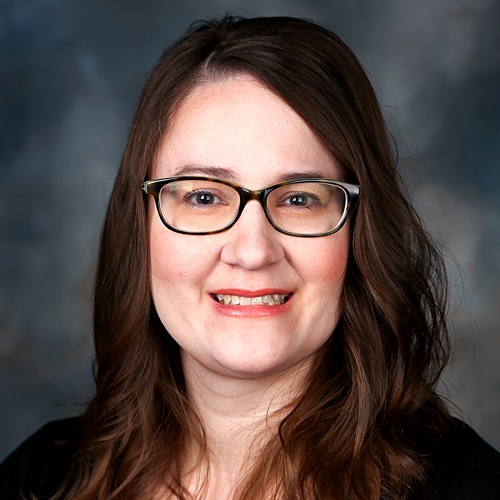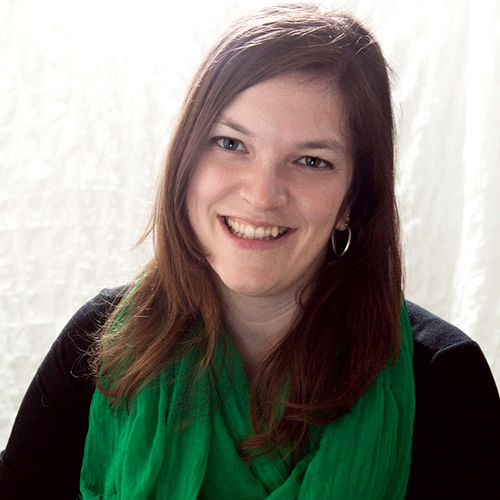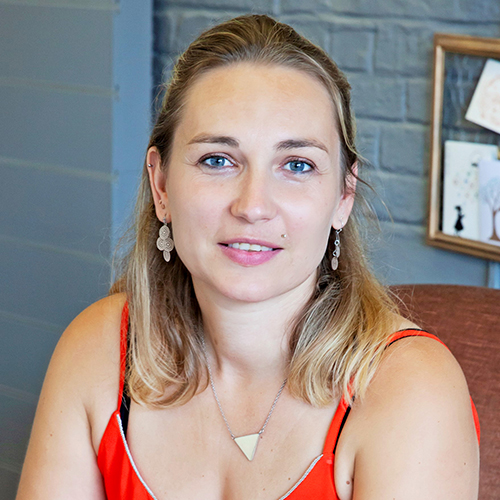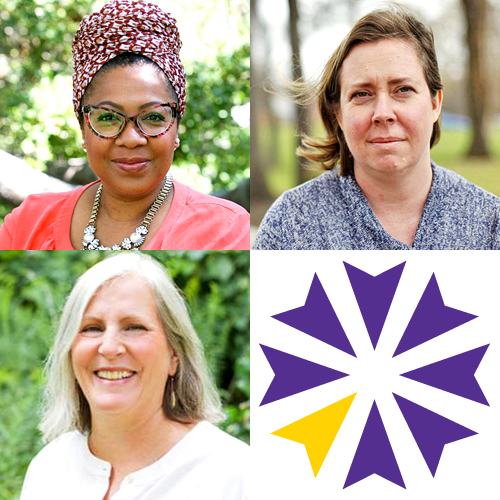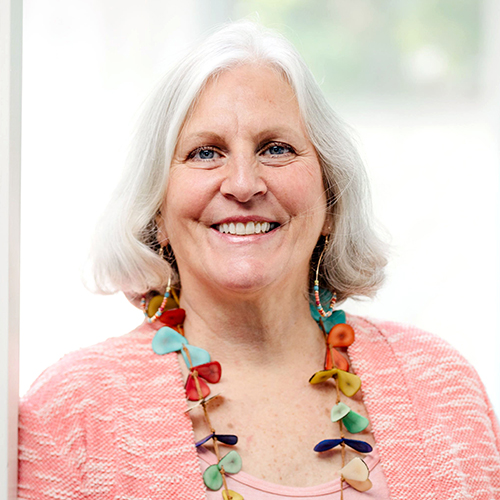 IBCLC Detailed Content Outline: Development and Nutrition Focused CERPs - Section I
IBCLC Detailed Content Outline: Development and Nutrition Focused CERPs - Section I
Access CERPs on Development and Nutrition for the IBCLC Detailed Content Outline recertification requirements. Enjoy convenient on-demand viewing of the latest Development and Nutrition focused IBCLC CERPs at your own pace.
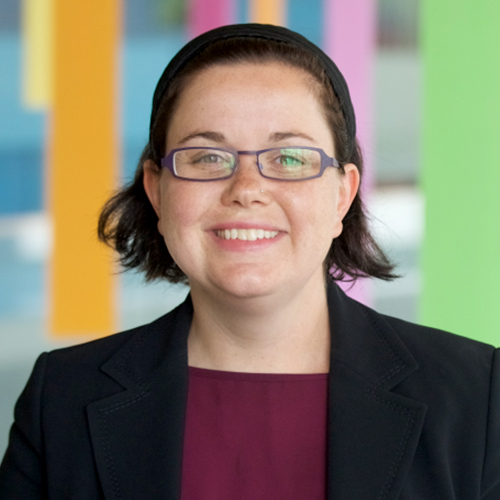
Building Bridges: Early IBCLC Recognition and Triage of Common and Life-Threatening Newborn and Maternal Pathology

Topic: How Low Is Too Low? Managing Newborn Hypoglycemia - [View Abstract]
IBCLCs, often with limited education in newborn medicine and obstetrics, care for the infant-parent dyad within the context of a complex healthcare system staffed by providers with variant training in breastfeeding medicine. This is an interaction filled with knowledge gaps and fraught with the possibility for misunderstanding and dangerously missed diagnoses. I plan to combine my training in general pediatrics and my clinical experience as a pediatric ER physician with my IBCLC training. I will teach conference participants about medical emergencies when caring for the breastfeeding newborn and the post-partum parent so that they can recognize clinical scenarios presenting to their care that require immediate medical assessment. The presentation will focus on high-yield topics in newborn medicine and postpartum obstetrics to deepen the IBCLCs recognition and ensure appropriate ongoing care for common and life-threatening complaints. It will include a discussion of neonatal jaundice, neonatal fever, severe weight loss, pyloric stenosis, congenital birth defects and genetic disorders; the lecture will also address postpartum depression, post-operative infections, and postpartum preeclampsia. Armed with this understanding of clinical red flags, IBCLCs will be empowered to better care for their breastfeeding patients, while also understanding when immediate medical assessment is imperative.
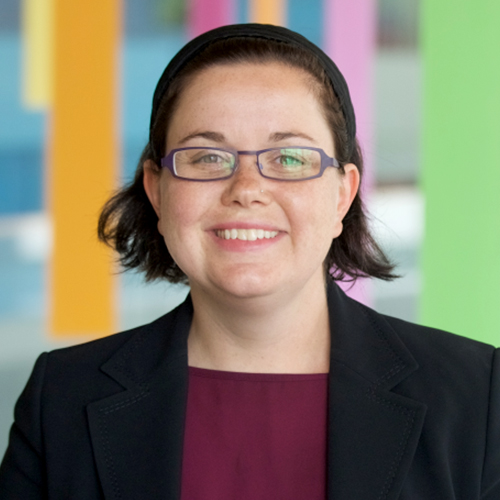
View Details / Enroll
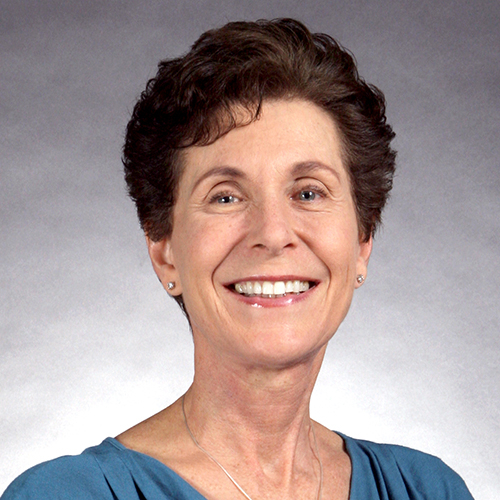
Building Strong Bonds: The Neurobiology of Parent-Infant Attachment in the NICU

After raising three children as a stay-at-home mother, Dr. Phillips received a master’s degree in Developmental Psychology with a focus on mother-infant attachment, became NIDCAP certified as a Preterm Infant Developmental Specialist, and then attended medical school at University of California, Davis. She completed her pediatric residency and neonatology fellowship at Loma Linda University Children's Hospital in S. California and is an attending neonatologist in the Level 4 NICU at the same hospital. She is an Associate Professor of Pediatrics/Neonatology at Loma Linda University School of Medicine and is Pediatric Department Chair and Medical Director of Neonatal Services at Loma Linda University Medical Center-Murrieta. Dr. Phillips is an International Board-Certified Lactation Consultant, a Fellow of the Academy of Breastfeeding Medicine, and a past president of the National Perinatal Association (NPA). She is currently President of the Association for Prenatal and Perinatal Psychology and Health (APPPAH), a global non-profit organization with a mission to support healthy infant-parent relationships before and after birth. Her passion is to honor and nurture the earliest connections between babies and their parents.
Developing secure bonds of attachment is a major developmental task for all human babies, a process that is considered to be foundational for future mental health and even physical wellbeing. The mechanism for doing so is called “nurturing,” and a growing body of evidence supports the impact of nurturing on physiologic stability, co-regulation and growth, as well as brain development and ongoing physical and emotional health. The first bond of attachment is between mother and baby and begins before birth. Separation of mothers and babies always causes stress and interrupts the bonding and attachment process. When temporary separation is necessary in the NICU, there are ways we can support mothers and babies to help minimize the detrimental effects of separation and to promote healing. This presentation will describe the neuroscience behind parent-infant bonding and attachment and the neurobiology of skin-to-skin contact as a modality for nurturing babies. We will describe ways to communicate with NICU babies in a manner that enhances bonding and attachment and promotes the development of trust as well as enhances brain and language development. We will discuss ways to support babies, mothers, families, and staff in promoting bonding and attachment in the NICU.
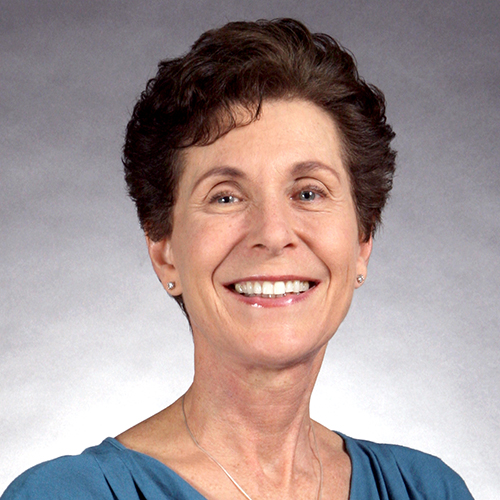
View Details / Enroll
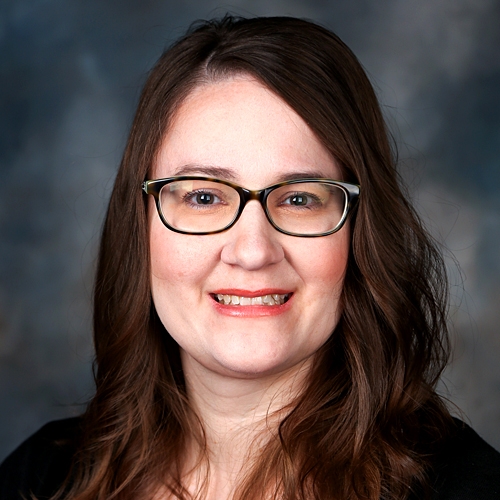

M. Petrea Cober, PharmD, BCNSP, BCPPS, attended the University of Tennessee, College of Pharmacy in Memphis, Tennessee. She completed her PGY1 Pharmacy Residency at Penn State Milton S. Hershey Medical Center in Hershey, Pennsylvania, and her PGY2 Pharmacy Residency in Pediatrics at the University of Michigan Hospitals and Health System in Ann Arbor, Michigan. She is currently the Clinical Coordinator - Neonatal Intensive Care Unit and PGY1 Residency Program Director at Akron Children's Hospital where she provides clinical services and precepts pharmacy students, PGY1 pharmacy residents, and PGY3 medical pediatric residents. She is also the Section Lead for Specialty Care and an Associate Professor in the Department of Pharmacy Practice at Northeast Ohio Medical University (NEOMED). Her didactic teaching is in the areas of pediatrics, women’s health, and nutrition. Dr. Cober's expertise is in pediatric pharmacotherapy, nutrition, ethanol lock therapy, and management of patients with intestinal failure. She is active in local, state, and national pharmacy organizations.
Critically ill neonates and infants are often unable to maintain adequate nutrition through the enteral route and require parenteral nutrition. Due to their increased nutritional needs, small size, and limited overall fluid intake, neonatal/infant parenteral nutrition requires specialized knowledge of stability and compatibility of parenteral nutrition macronutrients and micronutrients. Special attention will be given to issues involving protein requirements, glucose infuse rates, provision of lipid injectable emulsions utilizing newer products, calcium and phosphate compatibility, and challenges with limited intravenous access.

View Details / Enroll
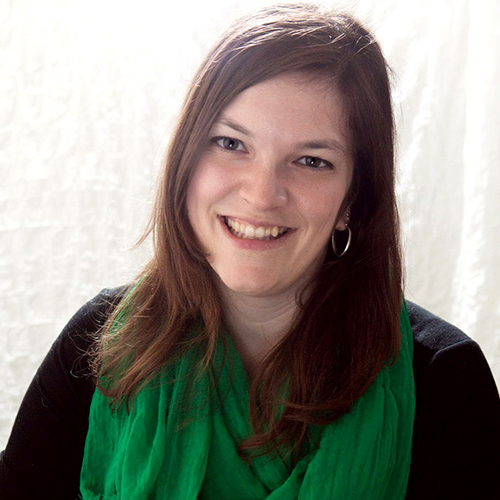

Julie Matheney knew when she was ten years old that she wanted to feed babies for a living. She earned her Masters in speech-language pathology and has worked with feeding and swallowing disorders for over a decade. While most people assume speech therapists teach children who stutter or work on ""r's and s's"", the bulk of her job is feeding and swallowing as part of a hospital based, rehabilitation team. The same things you speak with, you eat with! Over the past decade working in the NICU, she discovered her passion for working with breastfeeding families and became an IBCLC in 2018.
She transitioned out of the hospital in July 2021 and currently works full time in private practice as a lactation consultant in Los Angeles. She enjoys helping the whole family in the feeding process to meet their goals.
Her loving husband is always supportive of her in her vocational passions and was instrumental in launching her private practice. She has two young daughters, both of whom were exclusively breastfed until two years old.
Topic: Overcoming Challenges to Feeding: Supporting Parents with Physical, Mental or Socioemotional Differences - Part 1 - [View Abstract]
Topic: Overcoming Challenges to Feeding: Supporting Parents with Physical, Mental or Socioemotional Differences - Part 2 - [View Abstract]
The human body is intricate and fascinating. Anatomy (what it looks like) determines physiology (what it does). Sometimes anatomy, because of its variable nature, can cause changes in anticipated physiology which results in clinical symptoms. This presentation focuses on how symptoms give us clues about anatomy and physiology of the breast through the lens of several clinical case studies.


Dr. Andrew Dorough is a native of St. Louis, Missouri. He attended Westminster College in Fulton, Missouri, and graduated with a Bachelor of Science in biology. He then earned his Doctor of Chiropractic Degree from Logan College of Chiropractic in St. Louis, Missouri. He later earned a post-graduate certification from the International Chiropractic Pediatric Association (CACCP). He is qualified to deliver highly skilled and safe treatment to pregnant and postnatal patients and to neonatal and infant patients. Dr. Dorough enjoys providing collaborative care. He currently works in a family medicine clinic which boasts a breastfeeding medicine physician IBCLC, along with other IBCLCs, two nurse practitioners and a physician assistant. He assesses and treats infants with various forms of structural issues, including but not limited to cranial bone deformation (plagiocephaly), torticollis, and tongue and neck dysfunction, as related to feeding difficulties and infant well-being.
Topic: Collaborative Care With a Chiropractor for Infant Feeding Dysfunction - [View Abstract]
Evidence suggests that trauma during pregnancy, labor and delivery may be a contributing factor to soft tissue and joint restrictions that affect an infant’s inability to latch and effectively transfer milk. How can lactation and medical experts identify the signs of dysfunctional movements that contribute to feeding dysfunction? To what extent can chiropractic care, within a collaborative model, safely and effectively help to correct feeding dysfunction? This session will enable attendees to elicit a more careful history, and to notice often overlooked signs that cannot be resolved with better breastfeeding management, but rather, indicate referral to a pediatric chiropractor.


Carole Hervé is a private IBCLC (since 2011). She helps breastfeeding mothers at home or location of their choice, mostly in Paris and in the nearest neighborhood.
Prior to opening her private practice, she has been a La Leche Leader since 2008. Carole is passionate about information-gathering, education, articles writing, communications and training to provide lactation consulting and sensitive support to the families she works with.
She has been trained to support families with Sensory Food Aversion issues by Catherine Senez, a speech therapist in 2013 and is also BNCLC (Biological Nurturing Certified Lactation Consultant®).
She has been a speaker at the GOLD Lactation Online Conference in 2012, and in 2013 she translated 20 presentations from the GOLD Lactation Online Conference into French.
Carole has been strongly involved in the coordination of the International Breastfeeding Day (Journée Internationale de l’Allaitement), an event organized by La Leche League France. Carole is the mother of three children born in 2001, 2003 and 2006.
Children with Sensory Food Aversions consistently refuse to eat certain foods related to the taste, texture, temperature, smell and/or appearance. Feedings or mealtimes are therefore a displeasure for everyone.
Oral disorders are eating disorders caused by hypersensitivity.
Food aversions are common and believed to occur along a spectrum of severity, with some children reluctant to try new foods, and refusing whole food groups (vegetables, fruits, meats). Indeed, after an aversive experience, some children tend to generalize and refuse foods that look and/or smell like the aversive food (e.g., aversion to broccoli may be generalized to all green foods).
Reactions to the aversive foods can range from grimacing to gagging, throwing up, or spitting out the food. Some babies cannot even accept to be touched near their face, or mouth, they may not accept to be held in a wrap. Some children can't stand to have dirty hands, to walk in the sand, to be touched.
While this can be a challenge when a mother is trying to start solid food, this hypersensitivity may also even start with breastfeeding.
Babies need proper nutrition to grow and thrive, and difficulties with feeding in infancy can be a worrisome and become a dangerous condition. There are many different reasons why a baby may struggle with feeding. All merit evaluation and treatment. This conference aims at exploring solutions to support families who deal with oral aversion.

View Details / Enroll

View Details / Enroll

COVID-19 Guidance for Maternal and Newborn Care: Who’s Doing What and Why

Karleen Gribble (BRurSc, PhD) is an Adjunct Associate Professor in the School of Nursing and Midwifery at Western Sydney University.
Her interests include infant and young child feeding in emergencies, marketing of breastmilk substitutes, parenting and care of maltreated children, child-caregiver and caregiver-child attachment, adoption reform, and treatment of infants and young children within the child protection, immigration detention, and criminal justice systems.
She has published research on these subjects in peer-reviewed journals, provided media commentary, contributed to government enquiries, provided expert opinion for courts, and engaged in training of health professionals, social workers, and humanitarian workers on these subjects.
Karleen is an Australian Breastfeeding Association Community Educator and Breastfeeding Counsellor. Since 2010 she has been a member of the Infant and Young Child Feeding in Emergencies Core Group and has been at the forefront of the development of policy, training and research in the area of infant and young child feeding in emergencies.
Topic: Infant and Young Child Feeding in Emergencies: Background, Best Practice, and What You Can Do - [View Abstract]
Topic: Milk Sharing: Comparative Risks and Biomedical Ethics - [View Abstract]
Where women are suspected or confirmed as having COVID-19, hospital practices have ranged from isolating infants from their mothers and proscribing the provision of expressed breastmilk to supporting mothers to have skin-to-skin with their infants, early initiation of breastfeeding, direct breastfeeding, and rooming in day and night.
This presentation will briefly summarize the evidence base for breastfeeding and close mother-infant contact in the COVID-19 pandemic. It will also describe the variance in government and professional development guidance around the world, anomalies in guidance, which guidance documents have had the most influence internationally, and provide examples of good and poor practice in guidance development. Finally, this presentation will discuss the importance of emergency planning for infant and young child feeding and the need to learn from the mistakes of the COVID-19 pandemic.

View Details / Enroll
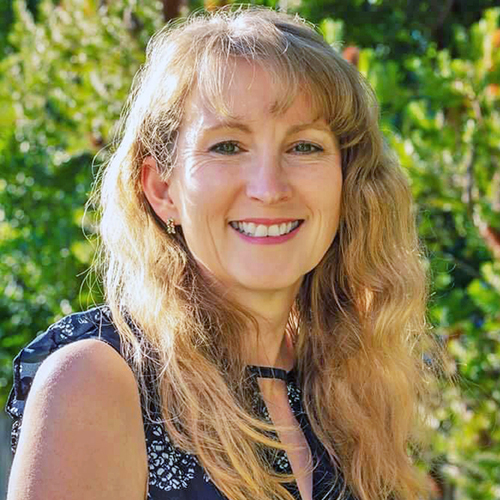
View Details / Enroll
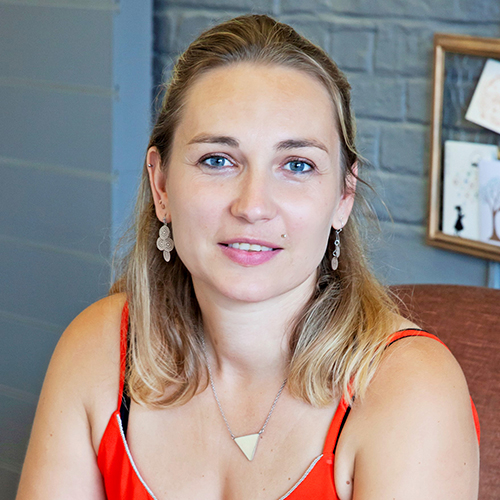

Joke graduated as a Midwife in 2006 and a Master in Midwifery in 2008. She obtained the IBCLC lactation consultant degree in 2011. She graduated in specialised applied pharmacology in 2015. She has experience as midwife and lactation consultant in her own primary care practice, lecturer at the University College Brussels, head editor of the Flemish Journal of Midwifery and board member of the Flemish Organisation of midwives and ELACTA. At the moment Joke is also a researcher on COVID-19 vaccination during lactation at the University of Brussels.
Topic: Ready-Made Educational Breastfeeding Material to Improve Parental Education and Empower Parents. - [View Abstract]
Breastfeeding parents will encounter the SARS-CoV-2 virus and may contract COVID-19. The availability of new vaccines against COVID-19 created a need for guidance about vaccination during lactation. We aim to get an insight into the effects of COVID-19 vaccines during the lactation period. This entails the safety of vaccination during lactation, the immune response in lactating women and the excretion of immunological factors in breastmilk. Not a lot is known about the transfer of immunoglobulin A (IgA) and the mechanisms by which these antibodies provide protection to the neonate via breast milk. This presentation contributes to the knowledge of SARS-COV-2 infections and the use of different vaccine-platforms during breastfeeding and will benefit the population with respect to public health. As vaccination during lactation could result in clinically relevant sIgA-titers in breastmilk and protecting the child in early life, it is of importance that women have this information to decide whether to take the vaccine.
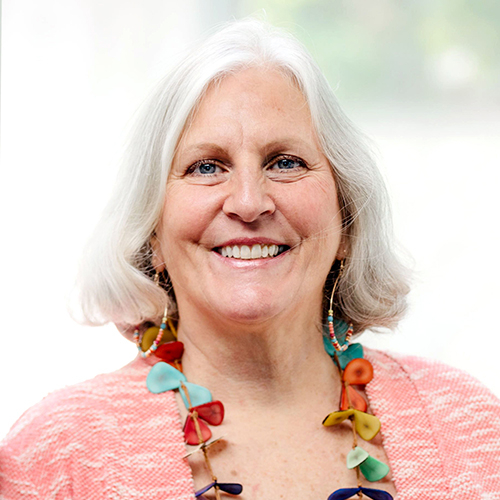
Creating Flow: Using Lymphatic Drainage Therapy for Breastfeeding Issues

Dr. Hazelbaker has been a therapist in private practice for over 30 years. She specializes in cross-disciplinary treatment and to that end has taken training in several modalities to best assist her clients. She is a certified Craniosacral Therapist, a Lymph Drainage Therapy practitioner, a Tummy Time™ Trainer, a Haller Method practitioner, A Pre and Perinatal Psychology Educator, a Lactation Therapist Diplomate, an International Board Certified Lactation Consultant and a fellow of the International Lactation Consultant Association.
She earned her Master’s Degree from Pacific Oaks College (Human Development specializing in Human Lactation) and her doctorate from The Union Institute and University (Psychology, specializing in Energetic and Transformational healing.)
People recognize her as an expert on infant sucking issues caused by various structural problems like torticollis, plagiocephaly, brachycephaly and tissue shock-trauma. She invented the Hazelbaker™ FingerFeeder and the Infant Breastfeeding CranioSacral Protocol™ to assist in the resolution of this type of infant sucking dysfunction.
Topic: Cranial Nerves: A Critical Component of the Process of Breastfeeding - [View Abstract]
Topic: Creating Flow: Using Lymphatic Drainage Therapy for Breastfeeding Issues - [View Abstract]
Topic: Finger Feeding: What Do We Know? What Should We Know? - [View Abstract]
Topic: Gamechangers: New studies that will change the way we think about tongue-tie - [View Abstract]
Topic: Infant Trauma: Impact on Breastfeeding - [View Abstract]
Topic: The Faux Tie: When is a "Tongue-tie" NOT a Tongue-tie? - [View Abstract]
Topic: The Impact of Bodywork on Infant Breastfeeding - [View Abstract]
Topic: What Does Torticollis Have to do with Breastfeeding? - [View Abstract]
Surprisingly, lymphatic congestion forms the foundation of some lactation problems like chronic plugged ducts and un-resolving nipple and breast pain. In this cutting-edge presentation, Dr. Hazelbaker covers the anatomy and physiology of the lymphatic system (especially as it pertains to the breast) and discusses the most common presentations and causes of lymphatic breast congestion. She demonstrates the Lymphatic Drainage Therapy technique in videos of three cases. Dr. Hazelbaker leaves the audience with a brief breast self-care regimen that can enhance the breast health of every participant when used consistently.
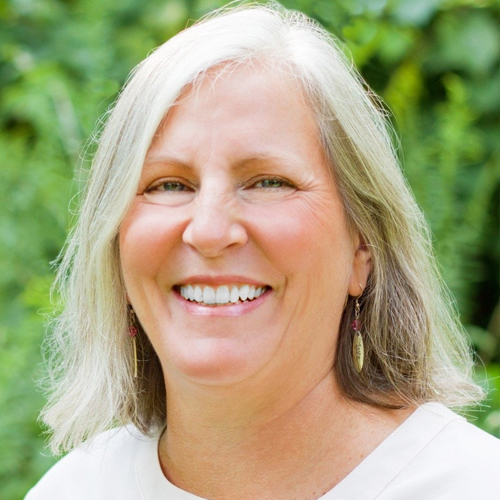
View Details / Enroll
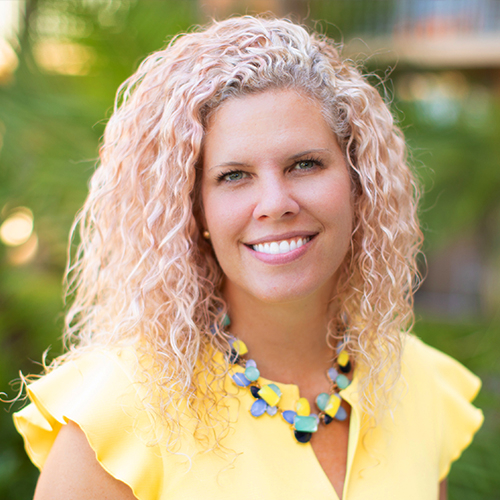
Current Trends in Identifying and Managing Neonatal Diabetes Mellitus

Tiffany Gwartney, DNP, APRN, NNP-BC, is an Assistant Professor at the University of South Florida (USF), College of Nursing. In addition to her neonatal clinical practice at Nemours Children’s Hospital in Orlando, Dr. Gwartney has been an Assistant Professor at USF since May 2015, where she has written and deployed experiential learning modules for the evidence-based practice course for undergraduates, integrated delegation simulations for undergraduate leadership students, and taught sim labs for the women, children & families course. Her most recent work was the implementation of a simulation regarding nursing interaction with a maternity couplet who was under airborne precautions, while in full personal protective equipment. This simulation was integrated into her COVID Care Education Module in which undergraduate students in their final practicum participated in a pilot program at designated clinical partner sites, providing bedside care for patients with COVID-19 disease. Her research interests include education, neonatal diabetes, role transition for novice Neonatal Nurse Practitioners (NNP), simulation, management of high-risk newborns in the delivery room, and couplet care for mothers with COVID-19. Dr. Gwartney has had several opportunities to speak internationally regarding the benefits of deliberate routine practice of high acuity, low-volume technical skills, and nationally regarding neonatal diabetes and conflict management. She is a member of Sigma Theta Tau (Iota Chapter) and is actively involved in several neonatal professional organizations: Florida Association of Neonatal Nurse Practitioners, Council of International Neonatal Nurses [education committee member], National Association of Neonatal Nurses [member], and The American Academy of Pediatrics [member, conference planning committee]. Dr. Gwartney enjoys traveling for pleasure but has also found herself working triage in a children’s clinic located in the remote village of Zapote, Guatemala, as well as educating NICU nurses in Paisley, Scotland and Shanghai, China.
Neonatal Diabetes Mellitus (NDM) is defined as persistent hyperglycemia (>200 mg/dL) that requires insulin treatment and occurs before six months of age (Habeb et al., 2020). While the incidence of neonatal diabetes is merely 1 in 90,000 to 160,000 live births, the rarity of this disease can make diagnosis challenging and potentially result in delayed treatment (Letourneau et al., 2017). Uniquely set apart from type I diabetes by its strictly genetic etiology, NDM can be associated with developmental delay and epilepsy (DEND). Insulin is a growth factor that is critical for optimal growth. Insulin dependence can be permanent or transient. Management of NDM includes insulin followed by stabilization using oral sulfonylureas (Hattersley et al., 2018). Positive outcomes are contingent upon early diagnosis, euglycemia, early interventions including multidisciplinary involvement, rehab services and parental support with regard to hypo/hyperglycemia management and insulin administration. The purpose of this presentation shall be to describe the etiology, pathophysiology and clinical presentation of NDM, discuss clinical management strategies, and recognize the importance of a multi-faceted, inter-disciplinary approach to caring for an infant with NDM.
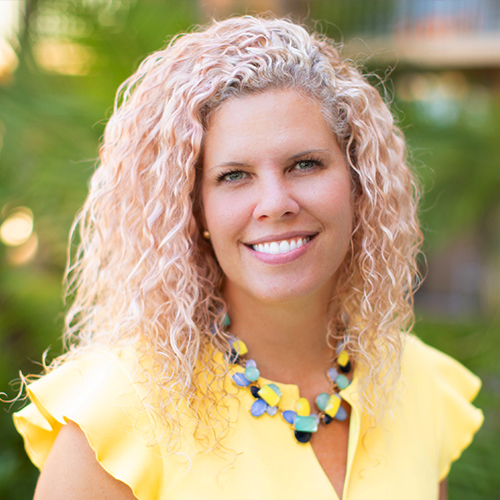
View Details / Enroll




